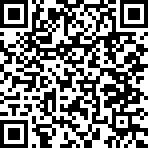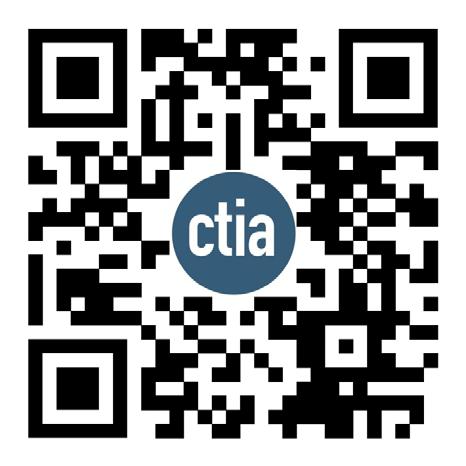















Written by expert teachers, X-kit Achieve offers a wide range of study resources for grade 8 to 12 to make learning, understanding, revising and practising for tests and exams easy.









Finals time!
Prioritising your child’s mental health
Tammy Dicks, National Trauma Support CoOrdinator at ER24, says that supporting your child is essential to keeping them calm
Navigating the complexities of university admissions
The journey to success is rarely a straight line – and flexibility and resilience are vital to navigating it successfully


12 18
Connected classrooms
Connected classrooms are revolutionising the education system in South Africa, unlocking students’ potential in unprecedented ways
Father matters
14
Social fathers: Who they are and why they matter
Ask Dalena Dalena van der Westhuizen answers questions and concerns from parents about learning, concentration, memory and cognitive development




Cooking and bonding
Ten-minute breakfast recipes you’ll want to make forever
Safeguarding online content
The Films and Publications Board in SA plays a crucial role in protecting children on the online space
Three factors that lay the foundation for success
Putting in the work, a little bit every day, helps students feel more empowered
Digital literacy
Bridging Africa’s educational gap through artificial intelligence
Empowering the nation’s young workforce
As we pass the torch to the next generation, investing in their growth today paves the way for a retail industry that delights customers, while driving innovation and progress
A heartfelt perspective
It’s vital for children to recognise their own worth. When they understand their value, they’re more likely to treat others with kindness and respect


My parents recently celebrated their wedding anniversary in the Kruger National Park – as that’s where they went on honeymoon 44 years ago. My brother, sister and I put a picnic basket together filled with their favourite snacks and drinks and each of us wrote a letter, which also went into the basket for them to read while they were there.
The essence of my letter was a heartfelt “thank you” for giving me such a happy childhood.
That’s what I – and, I’m sure, all parents – want to give our children: a carefree, protected, happy space.
However, the happy childhood we construct in our minds may not always be so easily given or willingly received. Nor is there a straightforward recipe for it, as each child has their own genetic make-up – and, like any important human relationship, the one between child and parents has to evolve through interaction and negotiation.
There are certainly things parents can do which will boost a child’s happiness. Hugh Jenkins, Director of the Institute for Family Therapy, points out there are certain conditions that create a baseline for childhood happiness, the most important ones being love and approval. The importance of children feeling loved has been the subject of countless research projects.
Jenkins also points out that it is difficult for children to feel happy if they don’t feel secure.
Physical security – feeling safe and protected at home – is clearly important. Being sent on group outings or holiday camps may suit some children very well, but they also need to know that if they’re unhappy in those places, they won’t be forced to stay there.
Finally, play and fun are essential. Children left to their own devices are able to enjoy and entertain themselves, but memories of a happy childhood often include times when their parents joined in. Perhaps this is why family holidays, when parents have more time for their children, are so often pulled from our memory bank as “golden days” of our childhoods.
The essential point is that providing our children with a happy childhood, despite so many daily challenges, is as simple as making sure they feel loved and safe – and enjoying them.
Happy reading!
Editor Adri Viviers | adri@isikhova.co.za
Managing Director Imraan Mahomed imraan@isikhova.co.za
Operations Director Thuli Majola thuli@isikhova.co.za
Copy Editor Anne Phillips
Design & layout Joanne Brook joanne@isikhova.co.za
Advertising Sales 011 883 4627
Recognised as a homeschooling stakeholder by the Department of Basic Education
Officially endorsed by CNA as its preferred homeschooling media partner
Subscriptions & General Enquiries: sahomeschooling@isikhova.co.za
SA Homeschooling magazine is independently published by Isikhova Media (Pty) Ltd, Johannesburg, 2193, South Africa Tel: 011 883 4627 | www.isikhova.co.za




























































































































Many soon-to-be matriculants may be concerned about the lack of job opportunities available in the economy – and, beyond that, what profession to pursue. Tammy Dicks, National Trauma Support Co-Ordinator at ER24, says that supporting your child is essential to keeping them calm
Aworrying reality facing South Africa is that almost half (49,1%) of the 18,3 million people currently not enrolled in education or in employment are aged 15-34. This is according to South African Markets Insights, which paints a problematic picture for parents who’re trying to encourage their children, particularly teenagers, to push forward on plans for the future.
This can lead to disheartening demotivation and stagnation of their essential life-shaping decisions. Fortunately, parents can positively influence their kids to keep their heads up over the challenging period of writing prelims and final exams, as well as determining what follows.

“Supporting your child is essential to keeping them calm. It’s important to listen and remember that exam stress is normal, as is wondering about what lies ahead. Remind your child that a test, by definition, is a measure of their understanding of completed work. You should constantly reassure them that results aren’t linked to who they are or your love and approval. Tests and challenges are an opportunity to learn and failure isn’t the end of the world. Avoid criticism
and, instead, validate your child’s concerns through your guidance and support,” says Dicks.
Parents are advised to know their child’s exam schedule and, if possible, the syllabus. “Assist with study plans and encourage your child to find a process of learning that fits them, because not everybody studies in the same way,” she says. “Remind them that exams are important, but not more so than mental and physical well-being. A positive approach promotes a more positive result.”


These steps can all add to showing support, alongside healthy routines.
“You should constantly reassure them that results aren’t linked to who they are or your love and approval.”

“Good eating habits, regular breaks and finding a balance between studying and relaxation are crucial for your child, both physically and mentally,” says Dicks. “Anxiety could be plaguing your child more than you realise, so it’s important to explain that while they may consider the worst possible outcome, they should also consider the best possible one. By trying to ‘flip the script’, your child can approach this time with clarity that things can go well, even if the future’s unclear.”
While certain tertiary studies have entry requirements that match good matric exam results, not all children will necessarily need to score highly to get into a college. However, some form of tertiary learning can help them on their way. Though some may go on to do other things, such as starting a business or finding a job that doesn’t require tertiary studies, there’s still merit in choosing an initial focus after matriculating.
There are opportunities to do an apprenticeship in a trade, there are bursaries available across a range of fields and entrepreneurship doesn’t always come with a degree.
Dicks believes that it’s a wise move to consider options as early as possible, but whatever path to which a child may seem drawn, parents should maintain a supportive approach.
Many youngsters struggle committing to tertiary studies, as they believe this will determine the outcome of their entire working career, but that isn’t always true. According to FundiConnect, 50-60% of university students drop out in the first year and though there are various reasons for this, changing courses is among them.
It’s a process


learning – and if they’re not learning, they’re not growing. It’s crucial to adopt a growth mindset, instead of a fixed one,” she adds.
Studying is a useful stepping-stone, but it may not align with where a child ends up professionally because circumstances from financial resources to realistic dreaming will play a role. Fundamentally, every parent wishes success for their child and can see their capabilities, which can create
expectations or add pressure, but being open-minded will have a better result for a child’s present and future well-being.
“Parents should take an interest in their child’s dreams. If you encourage curiosity about exploring new things, no matter how unconventional, your child will form a stronger connection with what interests them and what suits them professionally,” says Dicks.
“It’s worth noting that Mediclinic has been recognised as a 2024 Top Employer in SA. There are various opportunities to apply for a bursary through Mediclinic’s Higher Education programme, including for Nursing Diplomas, a Higher Certificate in Medical Care or a Higher Certificate in Diagnostic and Procedural Coding, among others.”
“Life is a journey of learning and where we start isn’t necessarily where we end up – but that’s OK. The only way to really know is to try,” observes Dicks, noting that often, when we try and don’t succeed, other options present themselves.
“Remind them that if they aren’t making mistakes, they aren’t
“If you encourage curiosity about new things, no matter how unconventional, your child will form a stronger connection with what interests them and what suits them professionally.”



























part from the stressful and exhausting application process to various universities for different qualifications, many students endure the disappointment of not being placed in the institutions of their choice and having to decide on their next steps.
“Although this situation (which is now facing thousands of prospective students throughout South Africa) feels like an intractable problem for them and their families, it’s important to put the matter into perspective. The first thing is not to take it personally or view it as a failure,” says Dr Linda Meyer, MD of IIE Rosebank College.
During Grade 11 and matric, the stress and anxiety for students and parents can be overwhelming, not only because of the pressure to perform well during exams and assessments, but also because of the complexities and uncertainties involved in applying for university placement

“Of course, it’s frustrating not being able to cross this item off your to-do list, especially if you’ve worked very hard, but weren’t accepted, while many of your peers have already been placed. However, you need to view this as a temporary hurdle, rather than a permanent roadblock,” she says.

“The journey to success is rarely a straight route –and flexibility and resilience are vital to navigating it successfully.”
The 26 public universities in SA only accept about 210 000 firstyear students annually, which can create significant worry about
what will happen if a prospective student’s plans unfold differently from what they expected.
Meyer urges parents and students to remember that there are many pathways to success and that university or college acceptance isn’t the only route to a fulfilling and successful career.
Some alternatives to consider:

Technical and vocational training colleges: Vocational training programmes and tech-

nical colleges offer specialised education in various fields, such as engineering, healthcare, information technology and the arts. These institutions often have more flexible admission requirements and provide practical, hands-on experience that can lead directly to employment.
Distance learning and online education: Distance learning and online education have become increasingly popular and accessible. These programmes offer flexibility for students to learn at their own pace and often at a lower cost than traditional universities. Many reputable institutions offer accredited online courses and degrees.
Bridging courses and foundation programmes: For students who may need to meet the direct entry requirements for university, bridging courses and foundation programmes are an excellent option. They’re designed to help students acquire the necessary skills and knowledge to qualify for their desired courses in the future.

Internships and learnerships:
Internships and learnerships provide valuable on-the-job training and experience. These programmes allow students to earn while they learn, gaining practical skills and industry insights that can be highly advantageous in the job market.
Private higher education institutions: The only significant
difference between a registered and accredited private higher education institution (PHEI) and a public university is that the former isn’t governmentfunded. PHEIs remain a valuable alternative to studying at a public university, and their graduates are in high demand in the workplace. However, it’s essential to ensure that you confirm your qualifications. SAQA must register all qualifications in SA and the provider must appear on the Department of Higher Education and Technology’s list of licensed providers. The Council of Higher Education oversees public and private higher education providers.
“By exploring alternative education options, managing stress effectively and keeping an open mind, students can find fulfilling and rewarding career opportunities, regardless of the outcome of their university applications. The journey to success is rarely a straight route – and flexibility and resilience are vital to navigating it successfully,” says Meyer.



Connected classrooms are revolutionising the education system in South Africa unlocking students’ potential in unprecedented ways. Lianne Williams, Marketing Director at Vuma, highlights how a connected classroom can change the face of education
Internet access is a lot like oxygen these days – we can’t seem to live without it. Students, parents and educators would probably agree, as the Internet has made learning much easier, effective and engaging through access to educational resources online.
“The connected classroom can change the face of education in South Africa, giving students across the country access to
the same learning opportunities and quality of education,” says Williams. “Ensuring that every student not only has access to the Internet in these spaces, but that they’re empowered to make the best use of the resources it opens up to them is crucial in changing
the educational landscape in SA for the better.”
The benefits of a connectivityenabled classroom are countless, from being able to access millions of learning resources to finding a community in the learning space. Here are a few more ways the Internet can transform learning, both within and outside the classroom:
Keeping students and educators in touch When students have trouble understanding a maths equation or need help with a tricky science concept in their homework, they may be tempted to give up figuring it out altogether. Having a WhatsApp group or access to any other instant messaging app with their peers and teachers helps them work through challenges on the spot, overcome potential disruptions and continue learning.
The school of YouTube YouTube videos can be a great source of information for students, especially those who find it easier to grasp information audiovisually. For educators, YouTube and other online video platforms can serve as supplements to lesson plans, helping students engage with new subjects and concepts.
Making learning fun and engaging The traditional classroom of yesteryear required children to sit quietly and read from their textbooks. Today, we know that the most impactful learning happens when children can see subjects come to life and are able to relate what’s being taught to what they’re familiar with. Digital tools such as animation, popular memes and GIFs, virtual games, music and more are now more commonly used to aid students on their educational journeys.


Learning in their own language For students who struggle in English-medium classes, learning can be an isolating and frustrating experience. Having access to translation apps, online dictionaries, peer forums and even multi-vernacular learning materials online can help break down language barriers and make the learning process much smoother.
Supporting differentlyabled students Students with learning, hearing, visual and physical disabilities require special educational resources and educators can support these needs by making more extensive

use of online resources which are designed specially for those circumstances. For example, online learning resources that incorporate sign language and graphics for the hearingimpaired, audiobooks for the visually impaired and alternative teaching methods for those with learning disabilities are just some examples of what educators can use to supplement classroom learning. The “anytime, anywhere” nature of the Internet also means that those with physical disabilities, who may find it difficult to attend classes or even have to miss school, can attend online classes at home or watch recordings of lessons in their own time.

The absence of fathers in South Africa is one of the critical epidemics of our time. The number of children growing up without a biological father in their lives is among the highest in the world and has severe and far-reaching ramifications, says George Mwaura
Without present, engaged and supportive fathers, rates of substance abuse, mental health conditions, teenage pregnancies and gender-based violence soar. The social fabric of families and communities begins to unravel.
Yet a man doesn’t need to be a biological father in order to play a fathering role and provide the benefits that fathering affords. More and more, social fathers are stepping into the gaps left by absent biological fathers,
giving children and teenagers the guidance and encouragement they need to thrive and succeed.
Through Isiseko Imara, the organisation run by Mwaura, he has been working as a sports coach and social father to children, especially boys, in seven communities in KwaZulu-Natal for
the past 14 years. The experience has been nothing short of transformational.
What social fathering means to Mwaura
“Social fathering goes beyond mentoring,” he says. “It’s about choosing – intentionally and consistently – to play a fathering role in a child’s life.
To be physically present and emotionally supportive. To be curious about their interests and invested in their well-being.
To show up for things that are important to them. To listen to
“Social fathering goes beyond mentoring. It’s about choosing – intentionally and consistently – to play a fathering role in a child’s life.”

them, challenge them and help them know themselves.
“Many of the young boys I work with are growing up with single mothers or grandmothers. They have very few men or male role models in their lives. Often, the men who are around them demonstrate toxic and destructive behaviours that the boys run the risk of imitating and repeating. As a social father, my responsibility is to dismantle these trajectories, to provide safety and security and to give them direction.
“I know there are men who prey on children – and that’s something we condemn without reservation. As social fathers and men in this country, we’re responsible for protecting children and keeping them away from abusers.
“In 2010, I facilitated our first Boys 2 Men camp, where we educated young boys on the journey into manhood. Of that group, 75% didn’t have fathers. It was at Boys 2 Men that I met Thando Mzimande, who was just 10 years


old at the time. Thando went on to join my basketball team and we got to know each other not just as basketball players, but as friends – and, over time, as father and son. He taught me how hungry boys are for father figures in their lives and what a positive impact playing this role can have.”
“George was there for me physically and emotionally,” says
Mzimande. “He paid attention to the clothes I was wearing and my situation at home. He saw how angry I was because I didn’t have a father. And he supported me and cared for me, so much so that he prevented me from falling into dangerous situations, like getting into drugs or dropping out of school.”
Today, Mzimande is a confident young man. He’s started his own basketball programme, recruiting coaches and engaging with 60 young people. He’s paying his experience forward and he and Mwaura remain close friends.
“I know that I share my approach with other social fathers.
Nkosinathi Sixabayi, the Western Cape Lead of Fathers Matter, is both a biological and social father, and had several social fathers in his own life growing up,” says Mwaura.
“Those who invested in my life provided guidance and helped me become the best I could be,” explains Sixabayi. Today, he – in turn – has committed himself to

investing in other children who aren’t his own because it was modelled to him.
“Many call me their father because of the love and care I give them,” he says. “Social fathers can make a difference in children’s lives and have a role to play in helping to address and prevent gender-based-violence.
“For your contribution as a social father to be meaningful and effective, it must be a conscious and deliberate act. It must
also be consistent. Be reliable and don’t create expectations you can’t meet. The children you’re likely to work with have had adults – and especially men – let them down in such profound
“A man doesn’t need to be a biological father to play a fathering role and provide the benefits that fathering affords.”
ways that their trust is fragile. You have a responsibility to keep your promises,” cautions Mwaura.
“That said, young people aren’t looking for father figures who’re perfect. You simply have to be available, honest and show an interest in getting to know them.
If you have the opportunity to guide, support and raise a child, do so gently, lovingly, consistently and patiently. The benefits for them, for you and for South Africa’s families and communities are beyond what you can imagine.”
If you’re looking for support in being a good father or social father, you can contact the Heartlines’ Fathers Matter WhatsApp Coach. Simply WhatsApp “Hi” to 060 058 2107 and get access to a range of tips and advice.

Accredited with Umalusi for FET phase, grades 10 – 12.
Learners who successfully completed grade 12 will be issued with an Umalusi National Senior Certificate.
We register Distance Education Providers (including Online Schools) and Umalusi accredited Independent Schools.
SACAI is value driven and its vision is to provide accountable and affordable assessment as well as examination services to all institutions that strive to achieve excellence in education.


Procrastination is a challenge many of us face every day –whether it’s delaying a project, steering clear of a difficult task or feeling overwhelmed by even the simplest ones.
Dalena van der Westhuizen, cognitive development specialist, executive function skills coach and co-founder of BrainAbility, sheds light on why this happens
"It’s as if my body knows I should get started, but my brain refuses to do it.” From hundreds of students’ explanations over the years, this is the one which most succinctly describes what procrastination feels like.



When it comes to important tasks, like studying or writing a presentation, the “fear of failure” is often cited as the main reason behind delaying getting started and seeing something through to completion. Few people realise how much we rely on our cognitive skills (particularly logic and reasoning) and executive function skills (like organisation and planning) to overcome this frustration.
The role of cognitive skills in procrastination
Cognitive skills are the mental capabilities we use to think, learn
and solve problems. Logic and reasoning are cognitive skills which enable us to process information, analyse situations and make decisions based on rationale, rather than impulse. It involves the ability to think abstractly, understand complex ideas and solve problems by drawing conclusions from available evidence.
Individuals with strong logic and reasoning skills are better equipped to break down tasks into manageable steps, identify the best starting point and foresee potential challenges. Those with weaker skills in this area might struggle to initiate tasks simply because they find it difficult to figure out where to begin or how to proceed logically. This difficulty can lead to a cycle of avoidance, where tasks are continually postponed because they seem overwhelming or unclear.
The role of executive function skills
Executive function skills, a subset of cognitive skills, include critical abilities such as organisation, planning and impulse control. These skills help us manage and complete tasks efficiently.

Cognitive skills and executive function skills work in tandem, with cognitive skills providing the foundation for executive functions to organise and prioritise tasks. When either set of skills is underdeveloped, it can disrupt the entire process, leading to difficulties in task initiation and completion.
A 2023 study in the Frontiers in Psychology journal reinforced this by demonstrating that students with stronger executive function skills were better at
setting goals, breaking down tasks and following through on them – key abilities which directly counteract procrastination.
Three practical tips to avoid procrastination
If procrastination has been a recurring challenge in your household, here are three strategies that have been shown to make a real difference:
Chunking tasks: Break larger tasks into smaller, more manageable segments. This makes it easier to start and maintain momentum. Encourage your child to tackle one chunk at a time, focusing on completing just one part before moving on to the next.
Time-blocking: Help your child use time-blocking – a technique where one allocates specific time slots to different tasks. This structure provides a clear plan, reducing the likelihood of procrastination due to overwhelm.

Set realistic goals: When goals are specific and


clearly attainable, your child can focus better on what needs to be done and by when. This structured approach not only helps maintain momentum, but fosters a sense of accomplishment as they meet each milestone along the way.
Preparing for year-end exams: Start now!
With year-end exams around the corner, here are actionable steps to help your child get ahead:
1. Gather past exam papers: Find out where your child can find at least two previous exam papers (and memos) for each subject they’re writing. Print them out for use as part of their study routine. Working through past papers helps your child familiarise themselves with the exam format, types of questions and the level of detail required in their answers.
2. Create a physical study calendar: Have your child purchase or print out a physical calendar and write down their exam dates as soon as they receive them. Once they have the dates, they should work back-wards from each exam date, subject by subject, and block out study time. They need to allocate sufficient time for each subject and be realistic about how long they’ll need to cover the material thoroughly. This visual representation of their study plan will help them stay organised and reduce the stress of last-minute cramming.
3. Ask for help now: If your child’s struggling, they shouldn’t wait until the last minute to get help. Whether it’s a specific formula, a confusing concept or general study advice, addressing these issues now will ensure that they’re well-prepared and confident when exam time arrives. Remember, asking for help early can make a significant difference in their overall exam performance.
Procrastination might feel overwhelming, but understanding how cognitive skills like logic, reasoning and executive function play a role can make all the difference. By focusing on developing these skills through targeted training and practical strategies, you can empower your child to overcome procrastination and approach tasks with renewed determination and efficiency.
• Situated in Vorna Valley Midrand, Johannesburg
• Offers swimming lessons for all ages from 6 months to 100 years old Click HERE to find out more! OVER 22 YEARS IN THE
Dalena will answer any type of questions, concerns or issues you may have about learning, concentration, memory, cognitive development and of course, frustrations and problems you may have with these.
Dalena will answer any type of questions, concerns or issues you may have about learning, concentration, memory, cognitive development and of course, frustrations and problems you may have with these.
PARENTS, E-MAIL YOUR QUESTIONS TO
PARENTS, E-MAIL YOUR QUESTIONS TO







STUDIEAANSOEKE VIR 2025 IS OOP
Voltydse studie op die Centurion-kampusse
Ideaal vir persone op soek na ʼn bruisende studentelewe
Jou studiereis begin hier!

SKANDEER DIE QR-KODE VIR MEER INLIGTING
Nauurse afstandstudie by ʼn sentrum of via e-leer
Ideaal vir persone wat wil werk en studeer
Akademia MSW (Maatskappyregistrasienommer: 2005/024616/08 ) is by die Departement van Hoër Onderwys en Opleiding as privaat hoëronderwysinstelling geregistreer ingevolge die Wet op Hoër Onderwys, 1997 Registrasienommer: 2011/HE08/005.

Die toekoms wink blinkoog vir oudtuisskoolleerder, Michael (Daniël) Schutte (25). Dié Akademia-alumnus en bestuursrekeningkunde het die Amerikaanse School of Tomorrow-kurrikulum gevolg, en het ná die skryf van die Scholastic Aptitude Test (SAT) in 2017 getwyfel of hy hoegenaamd verder wil studeer. Vandag, sewe jaar later, het Schutte reeds drie kwalifikasies aan Akademia verwerf.
Wat Schutte se loopbaanreis so merkwaardig maak is dat hy eerstens nie Rekeningkunde as skoolvak geneem het nie, sy skoolloopbaan in Engels voltooi het en sy studie in Afrikaans, én dwarsdeur sy studiereis voltyds gewerk het.
Schutte het vir die Hoër Sertifikaat in Rekeningkunde geregistreer via die instelling se nauurse afstandsmodel en het destyds by die Bloemfontein-sentrum ingeskakel. Dié program het hom toegerus met die nodige rekeningkundige grondslag om ná die suksesvolle voltooiing daarvan ʼn BCom-program met selfvertroue te volg.
Die instelling se e-leeropsie het dit vir hom moontlik gemaak om met die aanvang van die Covid-19-pandemie die BCom (Bestuursrekeningkunde)-program aanlyn te volg. Ná afloop van dié verwerwing van hierdie kwalifikasie het Schutte in 2023 vir die Nagraadse Diploma in Bestuursrekeningkunde geregistreer. Laasgenoemde is tydens 2024 se kwalifikasieplegtigheid aan hom toegeken.
“My tuisskoolervaring het my goed voorberei vir naskoolse studie, en veral nauurse afstandstudie,” sê Schutte. Hy voeg by dat hy sy tyd só kon bestuur dat hy onder meer bykomende kuns- en musiekklasse vir hoërskoolleerders kon aanbied vir ʼn ekstra inkomste. “Vandag kan ek daarvan getuig dat nuwe kennis en vaardighede voorwaar deure vir jou oopmaak. Die waarde van hierdie kennis lê voorts daarin dat niemand dit van jou kan wegneem nie, en hoe meer kennis jy het, hoe meer aanpasbaar en onmisbaar word jy,” verduidelik Schutte.
Hy beveel Akademia vir enige tuisskoolleerder aan. “Die nauurse

Michael Schutte, ʼn oudtuisskoolleerder, het reeds drie kwalifikasies aan Akademia verwerf en is opgewonde oor sy professionele toekoms as ʼn bestuursrekeningkundige.
afstandsmodel het die wêreld vir my oopgebreek. Ek kon myself nie net in die werksplek vestig nie, maar ek kon terselfdertyd by ʼn wêreldklas opleiding baat,” sê Schutte. “Danksy Akademia kan ek myself vandag met selfvertroue laat geld en kan ek as ʼn volronde professionele persoon my plek in die gemeenskap met integriteit en ʼn toekomsgerigte roeping volstaan,” voeg Schutte by.
As jy soos Schutte jou studiereis aan Akademia wil aanpak, terwyl jy voltyds werk of ʼn ander belangstelling navolg, besoek www.akademia.ac.za vandag nog. Studieaansoeke vir 2025 is oop.
The Films and Publications Board (FPB) in South Africa plays a crucial role in protecting children in the online space
It's important to highlight the significant efforts and initiatives undertaken by the FPB to safeguard children from harmful and prohibited content on the Internet. The board is a crucial guardian in protecting our children from the perils of harmful and prohibited content emanating from the digital environment.
The recent upsurge in incidents related to child sexual abuse material (CSAM), legally termed “child pornography”, as reported in various media outlets –including an article in The Citizen on 12 January this year titled Danger to Children: Court Denies Bail to Alleged Child Groomer and Porn Distributor – underscores the grim reality of online exploitation faced by our children. The grave implications of online child pornography have brought to light the indispensable role of the FPB in combatting such abhorrent activities. Through its dedicated Child Protection Unit, the board has been diligently working to identify and counteract individuals perpetrating the creation, distribution and possession of CSAM.

Between November 2023 and January 2024, seven individuals were arrested in connection with an online child pornography ring. These arrests involved a joint operation between the SA Police Service (SAPS) and the US Department of Homeland Security. The suspects were found in possession of thousands of images and videos of child pornography, leading to charges of accessing, distributing and possessing CSAM.
The recent surge in child pornography cases in South Africa (and, indeed, other countries, as exemplified by the infamous Jeffrey Epstein scandal in the USA and several arrests of UK media personalities) underscores the urgent need for robust measures to combat child online sexual exploitation.
The FPB’s Child Protection Unit has been at the forefront of this battle, working tirelessly to identify individuals involved in the distribution and possession of CSAM. Its mandate is identifying and preventing child pornography, as well as providing advice to the public.
The board has been actively involved in collaborating with law enforcement agencies and international partners to address these cases. Recent arrests of individuals involved in online child pornography rings, including those posing as teenagers to
lure underage girls into chat groups, demonstrate the FPB’s commitment to its mission. In one instance, it assisted in the analysis of over 733 000 images, of which around 27 000 were confirmed as CSAM. This demonstrates the pervasiveness of CSAM being distributed. Additionally, the FPB has provided testimony and evidence based on its findings to support the prosecution of individuals involved in these crimes. One of its child protection officers worked closely with law enforcement in conducting

“The recent upsurge in incidents related to child sexual abuse material underscores the grim reality of online exploitation faced by our children.”
analysis of images found in a man’s possession. The investigating officer also provided testimony of the findings in November 2020.
The Films and Publications Act, 65 of 1996 (FP Act) has significantly expanded the role of the FPB by transforming the institution into a fully-fledged online content regulator with legitimate powers to regulate the creation, production, possession and distribution of films, games and certain publications to protect children and members of the public.

The board’s comprehensive classification and rating system is pivotal mechanism for curbing access to unsuitable content, thereby shielding our vulnerable children from exposure to detrimental material.
One of the key functions of the FPB is to implement a robust classification and rating system, comparable with those utilised in the developed world. This classification system serves as a crucial tool in identifying and restricting access to ageinappropriate content, thereby safeguarding children from exposure to harmful material.



Moreover, beyond its regulatory functions, the FPB actively engages in public awareness campaigns and outreach programmes, aiming to enlighten parents, caregivers and the public about the significance of monitoring children’s digital interactions and ensuring their online security. By working in tandem with law enforcement
“One of the key functions of the FPB is to prevent and protect children from harmful and prohibited content through a robust classification and rating system.”
agencies to combat child pornography and offering valuable consumer guidance, the FPB is significantly contributing to creating a safer online environment for our children.
The board emphasises the importance of reporting suspected exploitation, grooming of children or incidents of CSAM through the FPB Hotline link on its website at: www.fpb.org.za. The FPB continues to work in partnership with organisations in SA and around the world to close in on the perpetrators of various online crimes against children. However, it stresses that it is also (and, indeed, primarily) the responsibility of parents to ensure that their children are protected from such perpetrators by monitoring their online activities and educating them about what they share, watch and read on the Internet, including social media platforms.





















Regardless of when formal assessments first start, students and parents will face new expectations in terms of planning, studying, commitment and scope of work that needs to be mastered – amounting to moving up to the next level in students’ academic journey
"I“While a good performance in formal assessments should be planned and worked towards, parents also need to realise that the experience of the journey of studying and preparing at this time will make a substantial impact on the child’s approach to exams in the future, when adult assistance and guidance won’t be available – or even desirable.”
Singarum says there are three factors that can lay the groundwork for developing a successful study foundation, to help empower and support young students during this crucial time and in the future:

t’s important for parents to understand this move into the next phase and the importance of these exams in terms of setting the tone for a successful academic journey for the rest of students’ lives,” says Nalani Singarum, Academic Advisor: InterSen Phase at ADvTECH Schools, a division of JSE-listed ADvTECH, Africa’s leading private education provider.
Cultivating a positive mindset and atmosphere Parents’ influence and attitude matter. Our children absorb our emotions like sponges and if we ourselves approach exams with anxiety or negativity, or a push for peak performance at all costs, they’ll pick up on it. Instead, parents should aspire to modelling a positive attitude. Share stories of your own exam experiences, with an emphasis on growth and learning. Encourage your child to view exams as opportunities to showcase their knowledge and skills.
Organisation and preparation Make the effort to create a clutter-free, dedicated study zone over which the student can feel
some “ownership”, to set the stage for focused learning. Ensure that it’s free from distractions like mobile phones. Before study sessions, check that stationery, textbooks and an exam pad are readily available. This simple step minimises disruptions and keeps the momentum going.
Help your child break down the work, as large tasks can overwhelm anyone, but especially young students. Help them section the exam requirements into manageable pieces and guide them in terms of creating summaries and flash cards (without doing the job for them!).
Celebrate small victories every day. Each section completed is progress towards success and reduces the need for anxietyridden cramming the day or weekend before the exam.



“Putting in the work, a little bit every day at this stage, helps students feel more empowered.”

Encourage your child to develop a habit of writing and drawing keywords while studying, as this reinforces memory retention. Whether it’s jotting down key points, solving maths problems or practising spelling, the act of writing solidifies understanding. This is the age when simply reading the textbook for revision is no longer a strategy for success.
Formal assessments in primary school are important in terms of performance, but in the earlier years, laying the foundation for future years is even more important. This is the time to show your child how to
determine and set achievable goals, to provide direction and motivation.
Teach your child that effort matters and that hard work pays off. Anxiety may still creep in, but consistently putting in the work, a little bit every day at this stage, helps students feel more empowered.




CTIA’s Online Culinary Programmes offer a seamless blend of theory and practical learning, designed for the aspiring chef who values flexibility. With our state-of-the-art online platform, students can access expert-led video tutorials, instructional materials, and live classes, all from the comfort of their own kitchen. Whether you're mastering the basics or refining advanced techniques, our comprehensive support system ensures you’re never alone on your culinary journey. Complete your training from anywhere in the world, with the final step of your qualification taking place at a CTIA campus near you, where you’ll showcase your skills in a practical exam.

A VARIETY OF COURSES TO CHOOSE FROM:
Foundation Programme in Professional Cooking
Professional Chef Programme
Professional Pastry Programme
Professional Chef & Pastry Programme
Food & Beverage Programme


Scan here to learn more about ctia’s online coffering

FLEXIBILITY & OPPORTUNITIES:


CONTINUOUS SUPPORT:
International Qualifications. Dedicated lecturers.
National Qualifications.
Work anywhere in the world.
Study from anywhere in the world.
Weekly online meeting for support and guidance.
Quality video tutorials.
Online app with course material, tutorials and learning activities.




In today’s fast-paced world, flexibility and convenience are key, especially for those who choose to homeschool. Chefs Training and Innovation Academy, South Africa's #1 Culinary School, now offers accredited online courses, making it easier than ever to pursue your culinary dreams from the comfort of your own kitchen. Whether you're a homeschooling parent looking to provide your child with a unique educational experience or an aspiring chef wanting to refine your skills, these courses offer the perfect solution.
CTIA’s online programs are designed to fit seamlessly into

your homeschooling routine. With expert-led video tutorials and interactive assignments, you can learn at your own pace without sacrificing the quality of your education. The courses cover everything from basic cooking techniques to advanced culinary arts, ensuring that you or your child gain the skills needed to become a world-class chef.
What's more, our qualifications are internationally recognised, opening doors to global opportunities. Upon graduation, you'll have the credentials to work in top kitchens around the world, from Michelin-starred restaurants in Europe to luxury resorts in Asia.
Studying from home doesn't mean compromising on quality. Our online platform is designed to provide a comprehensive and immersive learning experience that rivals traditional in-person classes. Visit www.ctia.co.za today and take the first step towards a rewarding culinary career, all while enjoying the flexibility that homeschooling offers.



Chef and mom of four, Anri Fourie, shares three familyfriendly breakfast recipes that are the perfect way to get all of them off to a wonderful start!
Healthy smoothie bowl with muesli
Preparation time: 15 mins
Ingredients:
For the smoothie:
250ml (1 cup) fresh or frozen berries
2 bananas
125ml (½ cup) Greek yoghurt
125ml (½ cup) milk
15-30ml (1-2T) honey or maple syrup (optional)
For the toppings:
125ml (½ cup) muesli
Fresh fruits (any you prefer)
Nuts or seeds (chia seeds, almonds)
Extra honey to drizzle on top
What else you will need:
A chopping board
A knife
A medium-sized bowl
A blender
Measuring cups
Method:
1. In a blender, combine the bananas, berries, Greek yoghurt and milk.
2. Blend until smooth and creamy. If the mixture is too thick, add a little milk.
3. Pour the smoothie mixture into a bowl.





4. Sprinkle the muesli evenly over the top of the smoothie.
5. Arrange the fresh fruits, nuts or seeds on top of the muesli.
6. Drizzle with honey and enjoy!

Preparation time: 10 mins
Cooking time: 30 mins
Ingredients:
10ml (2 tsp) olive oil
5 slices bacon, diced
1 small onion, diced
1 red bell pepper, chopped
200g cheddar cheese
A handful of parsley or chives, finely chopped
6 large eggs

45ml (3T) milk
1ml (¼ tsp) paprika
2,5ml (½ tsp) garlic powder
Salt
Freshly ground black pepper
What else you will need:
A chopping board
A knife
A medium-sized frying pan
A 12-hole muffin tin
A small bowl
Spray & Cook
Method:
1. Pre-heat oven to 170ºC and spray muffin tin with the Spray & Cook.
2. Add 10ml oil to the frying pan and fry the onion, bacon and bell pepper over a medium heat until the bacon is crispy and the onions are translucent.
3. In a small bowl, whisk the eggs, milk, paprika and garlic powder and season with salt and pepper.
4. Fold in the cooked onion, bacon and bell pepper, as well as the cheddar cheese.
5. Pour the mixture into the prepared muffin tin.
6. Bake until cooked through and golden (30-35 mins).
Loaded French toast
Preparation time: 15 mins
Cooking time: 10 mins
Ingredients:
4 large eggs
250ml (1 cup) milk
8 slices of bread (any kind you prefer)
Butter or oil for cooking
For the filling:
2 tomatoes, sliced
100g ham or cooked bacon
1 onion, sliced and fried until golden-brown
100g cream cheese (any flavour)
Any filling may be added to your liking

What else you will need:
A mixing bowl
A whisk
A frying pan
Measuring cups and spoons
Method:
For the egg mixture:
1. In a large bowl, whisk together the eggs and milk and add salt and pepper to taste.


To soak the bread:
Dip each slice of bread into the egg mixture, making sure that it’s coated well, but not overly saturated. Allow any excess to drip off.
To cook the bread:
1. Add oil or butter to the frying pan and place the soaked bread slices in it once the pan is hot.
2. Cook until golden-brown (about 2-3 minutes per side). Adjust the heat to avoid burning.
3. Put one slice of fried bread on a plate and assemble the “sandwich” by spreading it with cream cheese.
4. Then layer the tomatoes, onion, ham or bacon and cheese.
5. Cover with another slice of fried bread and serve.
Anri Fourie, owner of two guesthouses and mom of a nine-year-old daughter and five-year-old triplets, cooks meals that are quick and easy to make – with multiple little helping hands. In the Fourie household, family time is a great time to cook together. As the former owner of a coffee shop, Anri used to share the kitchen with skilled chefs. Today she shares it with her four busy little offspring, who’re all eager to pitch in and help.

Dalena van der Westhuizen will answer any questions or concerns you may have about learning, concentration, memory and cognitive development – and, of course, the frustrations arising from these
How can I help improve study habits for my kids? – Monya du Preez
Hi Monya
To help your kids develop strong study habits, it’s important to incorporate strategies supported by the latest research on learning. Here are some practical tips:


1. Monitor the time of day: Pay attention to when your kids are most alert and productive – whether it’s in the morning, early afternoon or early evening. Encourage them to study during these peak times to maximise their focus and retention.

2. Incorporate regular breaks: Ensure they take regular, short breaks during study sessions. A well-researched strategy is the Pomodoro Technique, where they study for 25 minutes, take a fiveminute break, study for 25 minutes and repeat. After two or three cycles, they can take a longer break. This method helps maintain focus and prevents burnout.
3. Adjust for age: Consider the age of your children when structuring their study time. Younger kids may need shorter study sessions with more frequent breaks, while older students can handle longer periods of focused work.
4. Create a distraction-free study environment: Set up a quiet, organised space that’s free from distractions like phones, TV or loud noises. A calm environment helps them concentrate better and absorb more information.
5. Encourage active learning: Instead of just reading or highlighting, encourage your kids to engage in active learning methods like summarising what they’ve learnt in their own words or try teaching/explaining it to someone else. These techniques are more effective in solidifying knowledge.
6. Consider enrolling for academic coaching: The aim of academic coaching is not tutoring academic information, but rather coaching your kids using research-based learning tactics and strategies, as well as strengthening executive function skills like time management, planning and prioritising, specific to each of your children’s needs.
7. Be actively involved: Offer encouragement, celebrate progress and communicate openly about their challenges and successes.
Will ADHD medication change my child’s brain? – Beauty
Mbavhalelo
Hi Beauty
ADHD medications are designed to help manage symptoms and improve focus. They can influence brain function, but they do not fundamentally alter brain structure.
For a comprehensive understanding of how these medications might affect your child, I recommend discussing this with a healthcare professional who can provide detailed, personalised information.
With exams around the corner, are there any clinically proven natural medicines that will help my child’s concentration?
– Retha Labuschagne
Hi Retha
While there are various natural supplements/medicines that

some people find beneficial for temporarily improving concentration, it’s crucial to always consult with a healthcare professional to ensure they’re safe and appropriate for your child’s specific needs.
For a long-term solution, it’s worth pin-pointing why your child’s struggling, so consider a cognitive assessment to identify strengths and weaknesses. Cognitive skills like the ability to pay attention and stay focused can be strengthened. This approach can provide lasting improvements.
My child is in Grade 11 and performs well academically. Will exposure to training in cognitive skills in learning be beneficial, especially as he’ll be in matric next year? –
Stephanie Bell

Hi Stephanie
Yes, cognitive skills training has proven to be highly beneficial for strong students. As your child prepares for the challenges of Grade 12, cognitive training can enhance his critical thinking, problem-solving abilities and overall academic performance.
It will also boost his ability to process information faster and strengthen his ability to think on his feet. These skills are valuable for managing increased academic demands and preparing for future studies.
Strengthening cognitive skills is an investment that offers lifelong benefits, even for top-performing students.
About Dalena
Dalena van der Westhuizen is the co-founder and MD of BrainAbility, a cognitive development specialist, a master brain coach and an internationally certified cognitive coach. She translates the latest international cognitive research and best practice into strategies that can be applied by parents and educators alike.

A mom and a self-confessed chocoholic, Dalena enjoys working with both kids and adults to improve the way their brains process information for better learning, reading and focusing.
Send your questions for Dalena to: adri@isikhova.co.za.


In the early years of education, understanding the nuances of childhood interactions is crucial. Kelly Eyre, Quality and Pedagogy Lead at Dibber International Preschools, offers a unique blend of personal and professional insights into this topic
As both a head of curriculum and a mother of two – one of whom is on the autism spectrum – Eyre provides a deeply empathetic perspective on earlychildhood social dynamics. In addition, her own experience on the spectrum allows her to view children’s challenges with profound understanding.
“Parents often express concern when their little ones come home with stories of being treated unfairly by peers,” says Eyre. “Worrying is natural, but it’s essential to understand that what may seem like bullying in preschool is often simply children learning to navigate their social world.” The actions that might be perceived as bullying are usually not repeated or intended to harm. These behaviours often stem from children trying to assert themselves, explore boundaries
or express their needs and feelings. At this tender age, they’re still mastering the skills needed for positive interactions with their peers.
“Our vibrant South African classrooms celebrate a rich tapestry of cultures, languages and backgrounds. While this diversity can sometimes lead to misunderstandings, it also provides a wonderful opportunity to teach empathy, respect and inclusion,” says Eyre.
Common behaviours such as snatching a toy or lightly pushing another child often occur because the children are unsure of how to ask for a turn or express their feelings. Teasing or exclusion usually serves as a way for them to test social limits, rather than a deliberate attempt to hurt. While sometimes concerning, these behaviours are part of a normal learning process at this age.

“Imagine if every child knew how valuable they are,” says Eyre. “This awareness can lay the groundwork for them to grow into caring individuals who positively impact those around them.
“At Dibber International Preschools, educators guide children towards healthy social behaviours by modelling respectful interactions. They teach children to share, take turns and use kind words, nurturing empathy by encouraging them to reflect on how their actions affect others.
“It’s vital for children to recognise their own worth. When they understand their value, they’re more likely to treat others with kindness and respect.”
Positive reinforcement plays a significant role in this process. Celebrating co-operative behaviour and acts of kindness reinforces the idea that empathy and collaboration are profoundly important. Establishing clear,

“It’s vital for children to recognise their own worth. When they understand their value, they’re more likely to treat others with kindness and respect.”
consistent boundaries helps children grasp acceptable behaviour. When conflicts arise, educators address them promptly and constructively, guiding children towards better ways to connect.
“Parents are key players in this journey,” notes Eyre. “Engaging in conversations about your child’s day, asking about their friendships and discussing how they handle challenges can provide valuable insights.”
Role-playing different scenarios at home can equip children with tools for positive interactions
and responses to demanding situations. Consistency between home and school in encouraging these behaviours is essential.
“Our goal is to foster understanding and compassion, helping children navigate the complexities of social interactions with confidence and kindness,” says Eyre. “By addressing early signs of bullying with empathy, we create an environment where every child feels valued and understood. Together, we can nurture a generation that not only recognises their own worth, but also extends kindness to others, laying the foundation for a more harmonious and inclusive society.”
In the fiercely competitive retail landscape, delivering exceptional customer experiences is paramount for building brand loyalty and standing out from the crowd. However, to achieve this critical goal, it’s crucial to have a highly skilled and passionately engaged workforce – especially among the youthful employees who represent the industry’s future
"Retailers must embrace the opportunity to invest in the professional growth of their young employees, unlocking a wellspring of fresh perspectives and potential,” says Merel van der Lei, CEO of Wyzetalk, a leading employee experience platform designed specifically for frontline workers. It offers a powerful solution for companies seeking to upskill their workforce.
“By combining effective communication tools with microlearning capabilities, retailers can unlock
the full potential of their young talent pool,” she adds.
The importance of upskilling youth in retail
Retail is a fast-paced and everchanging industry, demanding a workforce that can adapt to changing consumer preferences and technological advancements.
Junior employees represent a valuable asset for retailers seeking to stay ahead of the curve. “However, without proper training and
development opportunities, this potential can remain untapped,” warns Van der Lei.
According to a recent study, 76% of employees find companies more attractive if they provide additional skills training, while 70% are more likely to leave their current jobs for organisations that prioritise learning and development. These statistics underscore the pivotal role that upskilling plays in attracting and keeping top talent, particularly among the youth.

Traditional training methods, often characterised by lengthy classroom sessions or online courses, can prove challenging for the retail workforce. Frontline employees, constantly on the move and juggling various tasks, may find it difficult to dedicate extended periods to training. Moreover, companies incur higher costs when pulling people together for long-duration live training sessions, as it requires others to cover shifts, resulting in double pay. This is where microlearning emerges as a game-changer.


Microlearning is a modern approach to learning that delivers bitesized, easily digestible training modules, typically ranging from one to 10 minutes. Individuals can conveniently access these concise sessions during breaks, commutes or even brief pockets of downtime throughout the workday. By breaking down complex concepts into manageable chunks, microlearning caters to the preferences and lifestyles of the younger generation, who often thrive on quick, engaging and mobile-friendly content.
Microlearning for maximum impact
“By leveraging microlearning, retailers can provide their young employees with opportunities
to enhance their customer service and sales skills, while also enabling self-driven development through optional course libraries,” explains Van der Lei. “This not only improves performance, but also paves the way for career advancement and personal growth.”
“As we pass the torch to the next generation, investing in their growth today paves the way for a retail industry that consistently delights customers, while driving innovation and progress.”
One of Wyzetalk’s strengths lies in its multi-channel capabilities, making it accessible to both smartphone and feature phone users. This inclusive approach ensures that no employee’s left behind, regardless of their access to technology, fostering a unified and skilled workforce.
Fostering a culture of continuous improvement
“Effective communication, combined with upskilling methods like microlearning, builds trust, nurtures engagement and cultivates a workforce that’s prepared to meet the everevolving demands of the retail landscape,” says Van der Lei.
“By providing them with the tools and knowledge to excel, they not only ensure exceptional customer experiences, but also empower these individuals to become the industry’s future leaders and trailblazers,” she adds. “As we pass the torch to the next generation, investing in their growth today paves the way for a retail industry that consistently delights customers, while driving innovation and progress.”











Africa’s digital technology landscape is undergoing an exciting transformation, with artificial intelligence (AI) leading the way, holding the potential to significantly speed up the pace of learning across the continent, writes Yesh Surjoodeen, MD of HP Southern Africa
The emergence of digital technology, particularly AI, as a key enabler of closing the historic gaps in education access and outcomes for continents with lowto-middle-income countries, has invigorated the education sector and innovators within it, driving both economic and social growth.
As evidenced during the Covid-19 pandemic, when schooling disruptions during
lockdowns necessitated the move towards hybrid and online learning, digital platforms and tools are transformative for the education sector.
According to research supported by HP, the educational technology industry in Africa has seen an increase in funding from approximately US$7,65 million in 2019 to US$12,83 million in 2021. This growth in investment empowered the industry to provide quality
services and increase its reach across the education system on the continent.
Moreover, and crucially, digital entrepreneurs and innovators are contributing to the achievement of the 2030 Agenda for Sustainable Development (UN SDGs) and the African Union Agenda 2063 (Agenda 2063).
This is especially important in a region such as sub-Saharan Africa, which – according to
Unesco’s recent Global Education Monitoring report, “remains the region with the most children and youth out of school [primary and secondary school], with a total of 98 million children”. It is also the only region where this number is increasing, meaning that outof-school rates are falling more slowly than the rate at which the school-age population is growing. By leveraging digital tools that widen education access and embracing AI innovations that streamline the complexities, Africa can leapfrog to achieving sustainable gains in education that could be game-changers for emerging economies.
The beauty of it is that this reality is already taking shape in many countries across the continent today. For example, from a digital perspective, HP Life is a free online skills training platform which supports digital
entrepreneurship in Africa, empowering students and entrepreneurs through learning in-demand skills and business concepts. It’s available in over 200 countries across the world, offering over 2,5 million courses in eight languages – meeting the needs of digital entrepreneurs of today right where they are.

Education is the foundation of any evolution – particularly in the digital world. The HP Innovation and Digital Education Academy is rooted in this notion and makes

education more accessible to both teachers and students through digital pedagogies fit for hybrid learning. Through its Cambridge Partnership for Education EdTech fellowship, HP enables policymakers to grow knowledge and skills and lead impactful EdTech transformations in education systems across their communities, spanning Africa, the Gulf countries and Asia.
However, we know that for these innovative strategies to thrive and multiply into even better models, the focus needs to be on joint efforts which address challenges in technology access in education and support both students and teachers. By establishing more information and technology training hubs in schools, especially in rural areas, there can be wider access and digital adoption that propels both people and country to higher levels of achievement in education.
The UN SDGs and Agenda 2063 emphasise the role of the private sector in achieving inclusive and sustainable development and underline the importance of promoting entrepreneurship in Africa and championing it’s transition towards AI to promote equal opportunity. This will leapfrog the continent towards sustainable development – especially for those whose futures depend on it the most: our children.

ACADEMIC COACHES www.academiccoaches.co.za info@academiccoaches.co.za 012 345 1540

AKADEMIA www.akademia.ac.za navrae@akademia.ac.za 0861 222 888

BK PUBLISHING
www.bkpublishing.co.za mail@bkpublishing.co.za 012 342 5347

BRAINABILITY www.brainability.co.za dalena@brainability.co.za 082 448 8221

CHEFS TRAINIGN & INNOVATION ACADEMY (CTIA) www.ctia.co.za info@ctia.co.za 087 941 2433

CONQUESTA
www.conquestaolympiads.com www.conquestapastpapers.com conquest@iafrica.com 031 764 1972

INSCAPE
www.inscape.ac www.conquestapastpapers.com admin@inscape.co.za 012 346 2189
www.cambricollege.co.za
ISIKHOVA MARKETING
www.isikhova.co.za ruwayda@isikhova.co.za
MASKEW MILLER LEARNING www.mml.co.za Nosmilo.Mashwama@pearson.com 021 532 6000

www.myonlinescool.co.za


PENGUIN RANDOM HOUSE
www.penguinrandomhouse.co.za queries@penguinrandomhouse.co.za 021 460 5400/011 327 3550

RED & YELLOW CREATIVE SCHOOL OF BUSINESS
www.redandyellow.co.za welcome@redandyellow.co.za 087 227 3283

SOUTH AFRICAN COMPREHENSIVE ASSESSMENT INSTITUTE (SACAI) www.sacai.org.za info@sacai.org.za 012 348 5650
If you have your own homeschooling service whether it be social activities, caregiving services, gardening for kids programmes, extramurals, educational games/puzzles, outdoor activity programmes and the like, then SA Homeschooling’s “Chalkboard” pages are the perfect way to get them promoted. And at an exceptionally affordable rate with fantastic exposure!













































Branding available
Stationery labels, notebooks, deskpads, calendars and diaries +